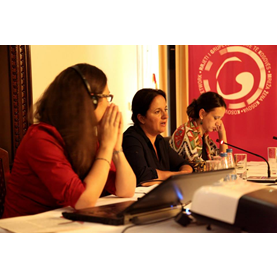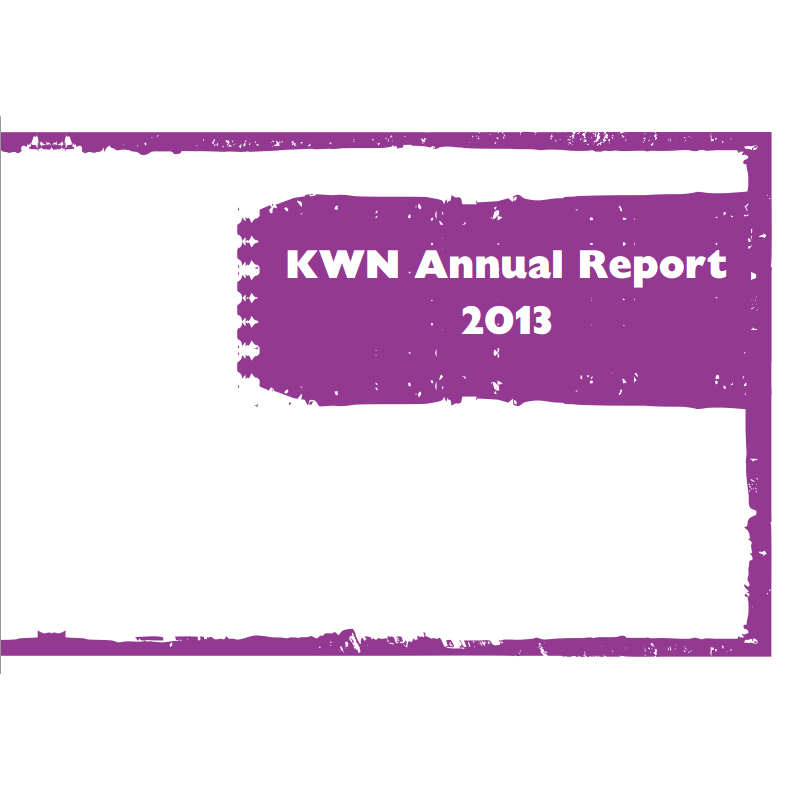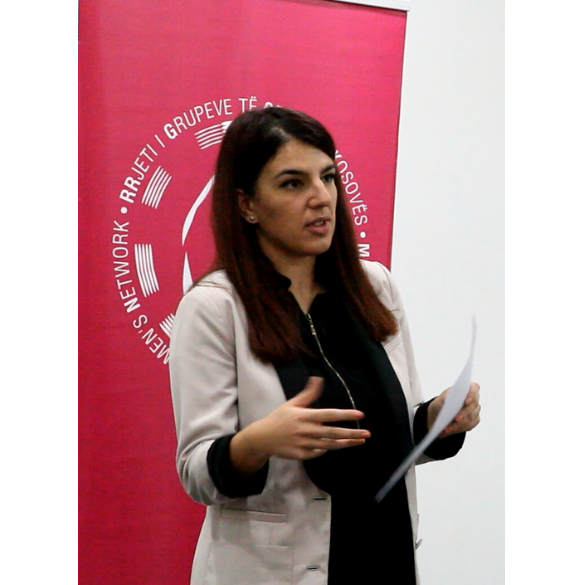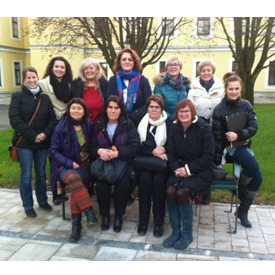On Sep. 2, KWN and Alter Habitus – Institute for Studies in Society and Culture (AH) presented initial findings from their research: “Where Is the Money for Women’s Rights?” The research involved a survey of 90 women’s organizations and interviews with more than 35 donors.The resulting recommendations seek to further efficiency and effectiveness in funding for gender equality and women’s rights organizing in Kosovo, including recommendations for “the state, donors and women’s organizations.”
Around 90 participants attended the launching and discussion, including KWN members, board members, donors and KWN supporters.
“You have done a great job in a very short time and with minimal funds,” said Advije Gashi from Norma Women Lawyer’s Association.
The survey’s initial findings suggest a clear decrease in overall funding available to women’s organizations between 2000 and 2013, with a brief increase in 2011. Other key findings include:
o Aside from a few Prishtina-based organizations, most women’s organizations encountered difficulties securing sufficient resources for
their issues, target groups, and strategies.
o Very few women’s organizations received income from individuals, assets, membership fees or income generation activities, suggesting heavy reliance on international funding and insufficient diversification of resources.
o Insufficient resources led a majority of organizations to reduce staff, cut activities, and/or work voluntarily for long periods of time. More than one-third have been in jeopardy of closing their offices, and a few have closed periodically, often with dire consequences for marginalized groups, such as persons suffering from gender-based violence.
o Of the donors participating in this research, only five had earmarked funding for women’s organizations. Some had funding available through competitions (e.g. for grants or contracts), for which women’s organizations compete with other organizations or businesses. Donors tend to provide short-term, project-based funding.
o The vast majority of women’s organizations have never received core funding.
Following the presentation, participants provided feedback regarding initial research findings and recommendations. KWN and AH also used the initial release to encourage women’s organizations and donors to supply additional information, towards developing a more complete understanding of funding provided for gender equality and women’s rights between 2000 and 2010 in Kosovo. KWN and AH will incorporate their feedback in the final report, which they will present publicly in November.
“I think this is a very useful report and it comes at a very strategic moment, as well,” said Lina Andeer, Kvinna till Kvinna representative in Kosovo. “It makes me reflect about my own organization. We are right now in a strategic planning process and I definitely can use this report for our discussions internally. What I hope will follow is a profound discussion of what to do about this negative trend […] to identify how civil society and donors can cooperate to try to change this negative trend.”
This research has received support from the Association for Women’s Rights in Development (AWID), as well as substantial in-kind contributions from KWN and AH.






